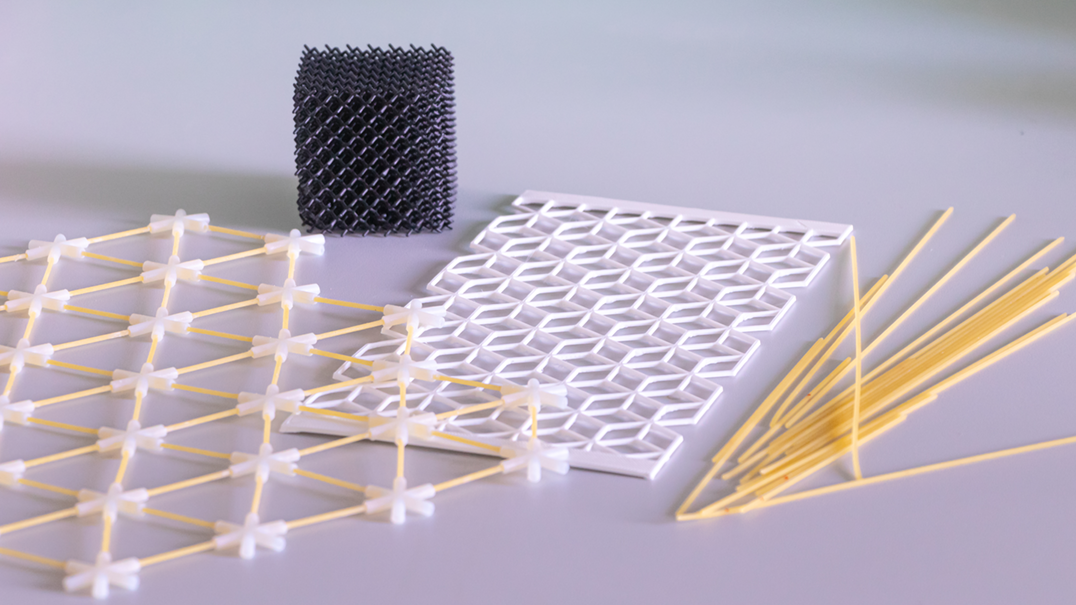News & Press
How Spaghetti Break and How Natural Models Are Inspiring Research
Visitors to the "Freiburg Wissenschaftsmarkt" have the chance to take part in an experiment on smart materials conducted by the livMatS cluster

For an experiment on the stability of materials, visitors to the "Freiburger Wissenschaftsmarkt" (engl.: "Freiburg Science Market") collect data on how spaghetti behaves under tension. Photo: Sonja Seidel
Customized prostheses or fuel-saving airplanes: Intelligent materials could make many new technologies possible in the future. Such materials are characterized by the fact that they react to external stimuli, adapt to their environment and are able to learn. Many of these materials are still in development, but scientists are designing ever better structures or working on new chemical compositions.
Visitors to the "Freiburg Wissenschaftsmarkt" (engl.: "Freiburg Science Market") can participate in this research online from June 7 to 26, 2021: In an experiment conducted by the livMatS cluster of excellence at the University of Freiburg, they are collecting data on how exactly uncooked spaghetti breaks when bent. Do they shatter into multiple pieces? Does anything change when they are bent slowly? The data collected helps researchers understand how structures behave under tension. This knowledge can later be used to develop artificial materials with a specific geometric structure that are particularly robust. Researchers from livMatS will also provide insights into bioinspiration at the science fair: In a lecture and in videos, they will show how natural models help materials research to develop new ideas.
livMatS at the "Wissenschaftsmarkt"
7. bis 26. Juni 2021: The "Spaghetti Experiment": Investigate with Dr. Viacheslav Slesarenko how Spaghetti break. Experiment instructions
7. bis 26. Juni 2021: The "Pine cone Experiment": Carmen Eger shows why researchers are interested in the cones.
21. Juni 2021, 15 Uhr: Lecture on bioinspiration in livMatS, Prof. Dr. Thomas Speck.
Complete content by livMatS at the "Wissenschaftsmarkt"
